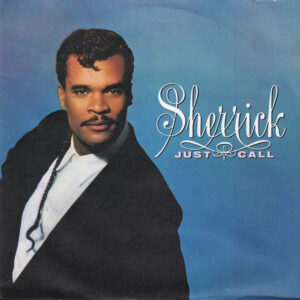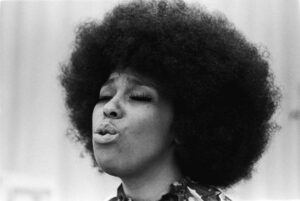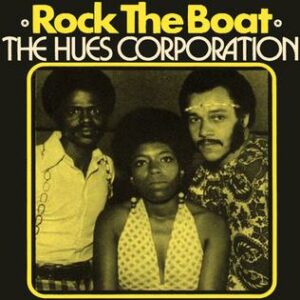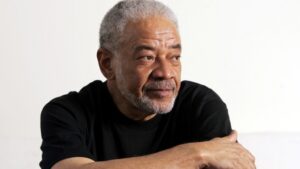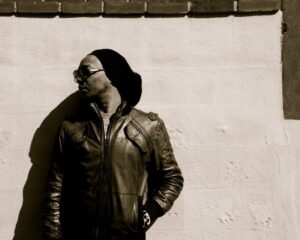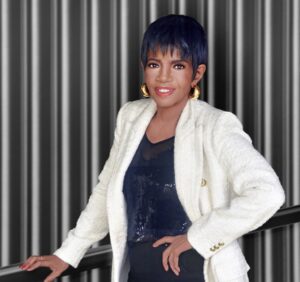An Interview with Donnie
By Christian John Wikane
 We’re lucky to have Donnie as our conscience. On his debut The Colored Section (2002), he even declared, "I’m proud that I have been chosen to wear the conscious cloud." Five years later, Donnie continues to make good on that proclamation. Very few artists dare to tackle suicide, child molestation, and corporate drug culture in their songs. None of these topics, however, were too taboo for Donnie when he released The Daily News in 2007. Recorded for the independent SoulThought label, The Daily News announced the return of modern-day soul’s mightiest voice. In his concerts, in his songs, and especially during this interview with SoulTracks, Donnie has a lot to say.
We’re lucky to have Donnie as our conscience. On his debut The Colored Section (2002), he even declared, "I’m proud that I have been chosen to wear the conscious cloud." Five years later, Donnie continues to make good on that proclamation. Very few artists dare to tackle suicide, child molestation, and corporate drug culture in their songs. None of these topics, however, were too taboo for Donnie when he released The Daily News in 2007. Recorded for the independent SoulThought label, The Daily News announced the return of modern-day soul’s mightiest voice. In his concerts, in his songs, and especially during this interview with SoulTracks, Donnie has a lot to say.
What about that five-year gap between albums? The first question many fans of The Colored Section had upon the release of The Daily News was, "Where has Donnie been?" By his own admission, Donnie’s life was rife with personal struggles. "It was a desert," he admits quietly. "Hardly any water. It was just hard dealing with life, dealing with tragedy, dealing with heartbreak, dealing with betrayal. I’ve just been healing, getting this right (he points to himself) so when I go out onstage there’s no insecurities. There’s confidence because I know who I am."
Donnie projects nothing but confidence onstage at the HighLine Ballroom in New York City. His voice booms in front of the 400 or so who’ve gathered and filled out the club’s perfectly aligned tables to witness a rare NYC appearance by the Kentucky-born, Atlanta-based artist. He leads the audience in a call and response round of the refrain for "911," the unofficial anthem of The Daily News. Even those who were not completely familiar with the new material couldn’t help but be swayed into the song: "I’d trade the World Trade to spend some time with you babe/I’d trade my racism, my sexism, my homophobia." For Donnie, that kind of rapport between the performer and the audience is ideal. "That’s what I like, what I search for in crowd. I like for you to know the music. You come to the concert, it’s because you want to see it…because, ‘Oh, I like that song and that song.’ It makes sense." He held the audience rapt with "Beautiful Me," "Heaven Sent," and "Rocketship" from his debut album while the new album’s title track baited those unfamiliar with The Daily News to "read all about it."
The long journey to that night’s performance, however, is a story in and of itself. In speaking with Donnie about the past few years, it wouldn’t be a stretch to say that The Daily News almost didn’t happen. "It was hard for me to function," he explained about returning to the studio to record his long-awaited follow-up. "To tell you the truth, I was just trying to run from it as much as I could. It’s awkward. People don’t understand unless they’ve been through it or been around it." He outlines how singing in church as a young boy led to session work, which led to a full-fledged career as well as the microscopic attention paid to his performance. A night where Donnie might have been suffering from a sore throat, for example, was grist for the rumor mill about whether Donnie really had the goods to deliver. The catty criticisms were not easy for Donnie to absorb but everyone from his mother to his partner encouraged him to rise above his detractors, to "get up" when he felt like giving up. "They said, ‘God gave you everything you need to make it through this experience. Get up!’ If my life ain’t nothing but a testimony (to) ‘get up,’ then so be it. You have to understand stuff to deal with it better instead of throwing a fit when it doesn’t work out your way. It’s always working out your way you just haven’t found out how it’s working out your way." A song like "Suicide" points towards Donnie’s self-realization that life is not worth giving up so easily. "It is worth the living, yeah/I’m a living witness," he sings, shedding light on his own journey and what he’s learned after surviving the dangers of personal doubt and despair.
Donnie infuses his balanced perspective of life all throughout The Daily News, which was originally entitled The Colored Section, Volume II. In fact he already had a newspaper concept in mind when he heard a track by Steve "The Scotsman" Harvey that inspired him to write the title cut. Opening up the newspaper these days is a harrowing experience and almost every ill of society is covered on The Daily News. Though the songs are high on the funk quotient, the lyrics reflect a stark reality of daily life. "America is good for sauce," Donnie explains. "We cover stuff in sauce. Women are being raped and dismembered in America. We live in it but we cover it with the entertainment business and drugs. That’s why so many drugs keep ‘crossing the border.’ Please. The higher-ups are drug dealers. That’s why I wrote ‘Over-the-Counter Culture’ because of the simple fact that I could go to the store, mix a cocktail, and get high." Donnie even coined a term to describe our supplement-afflicted culture: "monosodiumglute-nation."
One of the more historically based songs on the album is rooted in Donnie’s own backyard, so to speak. "The Atlanta Child Murders" makes the case for Wayne Williams, the man who was perhaps wrongfully convicted of the 14 murders of young black children that took place during the late-‘70s and early-‘80s. "We moved to Atlanta in 1983 so the murders were ending or still going on," he remembers. "My theory is that they were murdered and experimented on and the Ku Klux Klan was the ‘smoke and mirrors’ for the thing," Donnie says, explaining how the presence of the KKK in Atlanta was used to mask even more blood-curling realities of the murders. The song ultimately calls for the re-trial for Wayne Williams, the "political prisoner" of a supposed witch-hunt.
Charles Neville, Aaron Neville’s oldest brother, told an attentive audience at Berkeley a few years ago about a similar kind of race-driven hunt that swept through New Orleans during his childhood. Donnie was in the audience and recounts the story. "‘We had to run when the black truck came around,’ he said. ‘There was a group of four men and they were really rich. They got together and did experiments on black people in New Orleans so when the black truck came around, we had to run.’
"It’s a part of the horror of the south", Donnie says emphatically. "People from up north do not want to remember none of that shit and we have to deal with it everyday because we were the ones that stayed. People were being lynched. People don’t really understand why I do what I do. There is a great deal of hate against black people that has to stop because I’m not standing for it. They’re trying to change Jim Crow into something else or bring it back." Though many equate Jim Crow with a period in the not-so-distant past of the south, one only needs to reference the recent case of the "Jena 6" to see the murky ripple effects of racism in the U.S. The Daily News is an accurate reflection of that unfortunate reality.
Lest anyone thinks Donnie is above recrimination, he is the first to say that change must come from within. Look no further than "If I Were You," the first single off the album, as an example. "When tragedy happens, we all come together," he explains. "Give it a few weeks, we all go back doing the same ole thing. We are sick and we need to be healed. That’s why I do my music and I try to heal myself first: ‘If I were you, I’d make a change.’ You gotta make a change. The sickness has to leave. I don’t want to hate no more."
It’s obvious after listening to The Daily News that the creative desert Donnie limply walked through has become an oasis. It’s certainly reflected in his high-energy performances. He sings to the person in the front row and the back of the room. He’s preaching to both the choir and the soon-to-be converted. "I guess the passion is coming back," he says. "The only thing I can do is write some music or have a perspective. I can’t change it tomorrow. I can’t make everybody feel good. People have to learn how to be compassionate. I have to learn how to be compassionate. There are other ways to do things and get things done. You don’t have to holler and cuss and act like you’re going to intimidate them." Instead, Donnie recorded an album called The Daily News. Can you spare some "change"?
–
